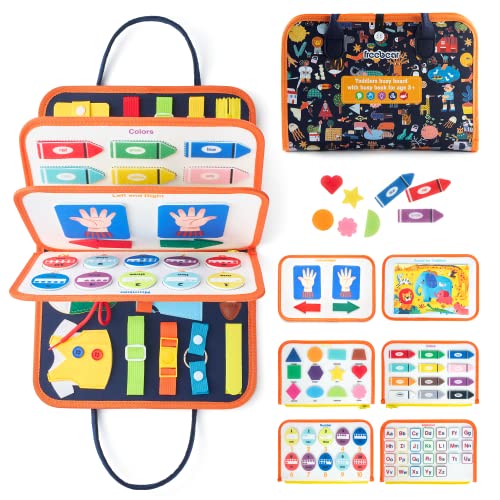In This Article Show
Welcome to “Maximizing Your Parental Leave: Tips for Bonding and Recovery“. As a mom of three, I’ve navigated the intricate journey of parental leave more than once. In this article, I aim to share practical insights and tips that I’ve gathered along the way.
Parental leave isn’t just time off work; it’s a crucial period for bonding with your newborn and recovering from the physical and emotional demands of childbirth. Whether you’re a first-time parent or a seasoned pro, this guide will help you make the most of this special time.
We’ll explore how to prepare for leave, bond effectively with your little one, take care of yourself, and eventually transition back to work. Join me in this journey to make your parental leave both fulfilling and rejuvenating.
Pre-Leave Preparation

As soon as you’re comfortable, inform your employer about your pregnancy and expected due date. Early notification allows for smoother planning and transition. Here are ways to prepare for leave at work.
- Understand Your Leave Entitlements: Familiarize yourself with your organization’s parental leave policies. Know your rights and the duration of leave you’re entitled to, whether paid or unpaid.
- Create a Transition Plan: Work with your team to prepare a transition plan. This might involve training a colleague to handle your responsibilities or setting up auto-responders for your email.
- Set Expectations: Clearly communicate with your manager and team about your availability during leave. Establish boundaries to ensure you can fully focus on your new family.
- Prepare for a Handover: Document your current projects, processes, and contacts. A comprehensive handover document can help your replacement and ease your return.
By thoughtfully preparing for your leave, you can create a space that benefits your professional life and your new role as a parent. This balance is key to a fulfilling and stress-free parental leave.
Maximizing Bonding Time with Your Newborn
The early stages of a child’s life are crucial for establishing a strong emotional connection. This bonding period lays the foundation for your child’s emotional development and sense of security.
Great deals to snatch for your little ones 🎉
Bonding can start with skin-to-skin contact, often recommended immediately after birth. This physical closeness promotes an emotional connection and has been shown to benefit both the baby and the parent.
Feeding times, whether breast or bottle-feeding, are more than just nutritional. They’re intimate moments where you can gaze into your baby’s eyes, talk softly, or even sing. These interactions, while seemingly small, are building blocks in your relationship.
Self-Care and Recovery for Parents

Self-care and recovery post-childbirth are critical aspects of new parenthood. The journey of bringing a new life into the world, while beautiful, can also be physically and emotionally taxing. Here’s how you can focus on your well-being while balancing the demands of newborn care:
- Prioritize Rest and Sleep: The interrupted sleep cycle due to baby care can be exhausting, so grabbing sleep whenever possible is crucial for recovery.
- Nutrition is Key: Include plenty of fruits, vegetables, whole grains, protein, and hydration, especially if breastfeeding.
- Gentle Exercise: Begin with light activities such as walking. Always consult your healthcare provider before starting any exercise postpartum.
- Delegate and Ask for Help: Don’t hesitate to ask for assistance from your partner, family, or friends. Delegating tasks can provide you with much-needed personal time.
- Incorporate Relaxation Techniques: Practices like meditation, deep breathing, or yoga can be effective for mental recovery and stress management.
- Health Check-Ups: Keep up with your postnatal doctor’s appointments. These are crucial for monitoring your recovery and addressing any health concerns.
Planning Your Return to Work
Returning to work after parental leave is a significant transition, both emotionally and logistically. It involves not just reintegrating into a professional environment but also balancing these responsibilities with your new role as a parent.
Before your leave ends, touch base to discuss your return. This could include confirming your start date, discussing any potential for flexible working arrangements, and understanding any changes that may have occurred in your absence.
Gradually preparing for the change can also ease the transition. This might mean starting to adjust your baby to a new routine or care arrangement a few weeks before your return. It helps both you and your baby to acclimatize to the new schedule and reduces anxiety for both parties.
Tips from Experienced Parents

Drawing from the wisdom of those who have navigated the journey of parenthood can provide invaluable insights. Here are some anecdotes and advice from experienced parents:
- Embrace Imperfection: Embracing imperfection and learning to laugh at the mishaps can alleviate a lot of the pressure new parents often feel.
- The Power of Routines: While every baby is different, many parents have found establishing a routine to be a game-changer.
- Take Time for Your Relationship: Regular check-ins, date nights, even if at home, and sharing responsibilities can strengthen your relationship during this challenging time.
- Savor the Small Moments: Amidst the busy days, experienced parents often suggest taking a moment to savor the small things – a baby’s smile, the peaceful look of a sleeping child, a giggle.
- Self-Care is Non-Negotiable: Seasoned parents often stress the importance of self-care. Taking care of your own physical and mental well-being is crucial for being able to provide the best care for your child.
- Every Phase is Temporary: When going through tough phases, like sleep regressions or teething, many parents remind themselves that these phases are temporary and will pass.
- Enjoy the Journey: Finally, the overarching advice from experienced parents is to enjoy the journey. Watching your child grow and develop is one of life’s most rewarding experiences, despite the challenges.
These snippets of wisdom, garnered from a variety of parental experiences, offer a blend of practical advice and emotional support, underscoring the universal aspects of the parenting journey.













